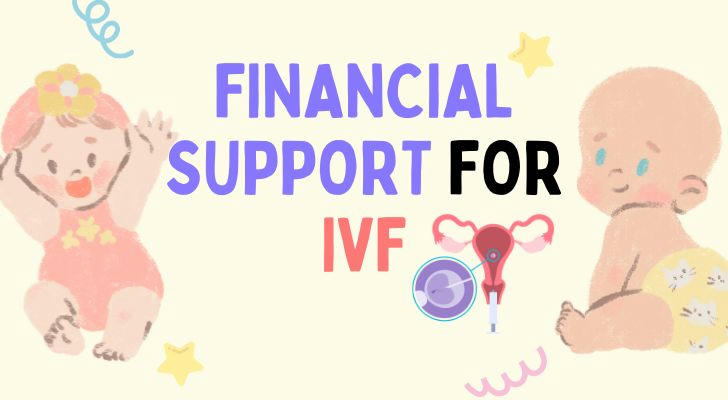How to Get Funding for IVF Treatment: A Simple Guide to Grants and Support Programs
Starting IVF can be life-changing—but it’s often expensive. Thankfully, many grants, charities, and government-supported programs can help cover the cost. This guide breaks down where to find financial support for IVF—from grants and charities to government-backed programs.

Why More People Are Seeking IVF Assistance
In the U.S., about 1 in 8 couples face infertility. IVF offers hope, but the average cost per cycle ranges from $12,000 to $15,000—and most couples need more than one cycle. For many, these costs are out of reach without insurance coverage or financial help. That’s where IVF grants, government support, and low cost fertility clinics come in. These options are making fertility treatment more affordable and accessible for families across the country.
Understanding IVF: First, Second, and Third Generation Treatments
Before seeking financial aid, it helps to understand the types of IVF available:
◾ First-generation IVF (IVF-ET): This traditional method involves fertilizing eggs with sperm in a lab, then transferring the embryo to the uterus.
◾ Second-generation IVF (ICSI): A single sperm is injected directly into an egg, typically used when male infertility is a factor.
◾ Third-generation IVF (PGT): Also known as Preimplantation Genetic Testing, this method screens embryos for genetic abnormalities before implantation—often recommended for carriers of genetic conditions.
Understanding the differences can help you determine treatment costs and choose appropriate financial aid programs.
Grants and Charities That Can Help
Several nonprofit organizations and clinics offer fertility treatment grants or cash assistance to reduce the financial burden of IVF. Here are some of the most trusted programs:
1. The American Fertility Association (AFA)
AFA supports families facing infertility by offering partial financial assistance for IVF treatments. Beyond funding, AFA is dedicated to fertility education and public awareness, providing expert-led webinars, resources on reproductive health, and advocacy to reduce stigma around infertility. Their mission is to empower individuals with knowledge, emotional support, and greater access to fertility care across the country.
2. The Baby Quest Foundation
Offers grants to help pay for IVF procedures and medications. Awards are based on financial need and medical eligibility.
3. The Gift of Parenthood
Provides grants that cover both treatment and medication costs. The organization also offers emotional support for couples undergoing fertility treatment.
4. Fertility Within Reach
Connects people with government-supported IVF resources, grants, and crowdfunding tools to help manage treatment expenses.
5. Paying for IVF
An online hub for finding grants for IVF treatment, comparing funding options, and learning how to apply for financial aid.
6. CNY Fertility
One of the most well-known low-cost fertility clinics in the U.S., offering monthly cash grants for full IVF treatment. Eligibility and details change monthly.

Who Is Eligible for IVF Financial Support?
If you're wondering who is eligible for IVF grants, here’s what most programs look for:
A medical diagnosis of infertility
Financial documents to demonstrate need
U.S. residency or citizenship
A personal story or statement
Medical records, sometimes including a doctor’s letter
Each program has its own criteria, so it’s important to read the requirements carefully before applying.
How to Apply for IVF Grants
Applying for IVF grants may take some time, but it’s worth the effort. Here’s how to get started:
1️⃣ Choose the right program. Research multiple options to find those that match your situation.
2️⃣ Gather documents. This includes medical history, proof of income, and a personal statement.
3️⃣ Apply early. Some programs have deadlines or limited application windows.
4️⃣ Follow instructions closely. Missing documents or unclear answers can delay your application.
Final Thoughts
IVF doesn’t have to be financially impossible. With the help of grants for IVF treatment, government support, and low cost fertility clinics, many couples are finally able to grow their families. These resources don’t just reduce costs—they bring hope.If you’re considering IVF, take the time to explore these options. The path to parenthood may be closer than you think.

